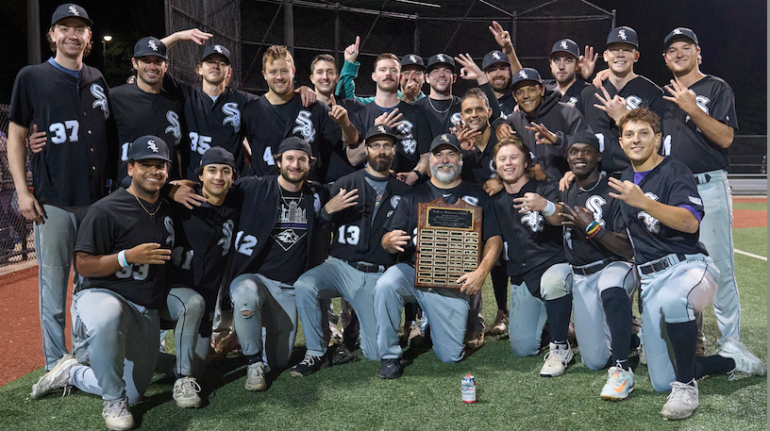CITY OF BOSTON
IN CITY COUNCIL
AN ORDINANCE TO PROHIBIT THE USE OF SMOKELESS TOBACCO AND OTHER TOBACCO PRODUCTS AT SITES FOR PROFESSIONAL AND AMATEUR BASEBALL AND OTHER SPORTING EVENTS.
WHEREAS, while cigarette smoking in the U.S. Has been on the decline, reports from the U.S. Centers for Disease Control and Prevention (CDC) and high school surveys, indicate that the use of smokeless tobacco among youth has not declined significantly since 1999, and
WHEREAS, far too many young people use smokeless tobacco, CDC finding that nationally 14.7% of high school boys and 8.8% of all high school students reported using smokeless products in 2013; and
WHEREAS, each year, about 535,000 kids ages 12-17 use smokeless tobacco for the first time; and
WHEREAS, public health authorities, including the Surgeon General and the National Cancer Institute, have found that smokeless tobacco use is hazardous to health and can lead to nicotine addiction; and
WHEREAS, the National Cancer Institute and the International Agency for Research on Cancer report that use of smokeless tobacco causes oral, pancreatic and esophageal cancer; and
WHEREAS, smokeless tobacco products are heavily advertised an promoted, with the top five smokeless tobacco companies in the U.S. nearly tripling their total advertising and marketing expenditures from 1998-2012 (the most recent year for which data are available). The Federal Trade Commission reports that in 2012, these smokeless tobacco companies spent $435.7 million to advertise and promote their products; and
WHEREAS, an expert from the CDC stated that, “Athletes serve as role models for youth, and smokeless tobacco manufacturers have used advertising, images, and testimonials featuring athletes and sports to make smokeless tobacco products appear attractive to you”; and
WHEREAS, the CDC expert also noted that, “Children and teens closely observe athletes’ actions, including their use of tobacco products, and are influenced by what they see. Adolescents tend to mimic the behaviors of those they look up to and identify with, including baseball players and other athletes; and
WHEREAS, the use of smokeless tobacco has becomes part of the culture of baseball, not only at the professional level, but at every level through the sport; and
WHEREAS, the strong association of baseball and smokeless tobacco is reinforced by the use of smokeless tobacco by players, coaches and fans at every level of the sport, professional and amateur; and
WHEREAS, smokeless tobacco spit is unsanitary and interferes with the enjoyment of other players and fans.
Therefore, City of Boston Code, Ordinances, Chapter VII, Section 7-4 is hereby amended by inserting the following language after subsection 7-4.14:
7-4.15 Use of Smokeless Tobacco and Other Tobacco Products Prohibited at Sites for Professional and Amateur Baseball and Other Sporting Events.
- Notwithstanding any other provision of law, no personal shall use smokeless tobacco or any other tobacco product, at an event site for professional, collegiate, high school or organized amateur sporting events.
- As used in this subsection:
“Event site for professional, collegiate, high school and other organized amateur sporting events” means the entire physical area in which such sporting events occur. The event site shall include all open, semi-open and enclosed spaces and structures, including, but not limited to, playing fields, dugouts, bullpens, training rooms, locker rooms, team bench area, spectator seating areas, pedestrian walkways, bathrooms, dining areas, vendor areas, offices, recreational areas and stadium parking lots.”
“Professional, collegiate, high school and organized amateur events” includes: (1) baseball, softball, football, basketball, hockey, track and field, field hockey, lacrosse and soccer; and (2) any other event involving a game or other athletic competition organized by a league or association of persons.
“Tobacco Product” means:
- Any Product containing, made, or derived from tobacco or nicotine that is intended for human consumption, whether smoked, heated, chewed, absorbed, dissolved, inhaled, snorted, sniffed, or ingested by any other means, including, but not limited to cigarettes, cigars, little cigars, pipe tobacco, smokeless tobacco; and
- Any electronic device that delivers nicotine or other substances to the person inhaling from the device, including, but not limited to electronic cigarette, cigar, pipe or hookah.
- “Tobacco product” includes any component, part or accessory of a tobacco product as defined in subsections (1) and (2), whether or not sold separately. “Tobacco product” does not include any product that has been approved by the United States Food and Drug Administration for sale as a tobacco cessation product or for other therapeutic purposes where such a product is marketed and sold solely for such an approved purpose.
“Smokeless tobacco” means any product that contains cut, ground, powdered, or leaf tobacco and is intended to be placed in the oral or nasal cavity, including, but not limited to, snuff, chewing tobacco, dipping tobacco, dissolvable tobacco and snufs.
- Persons or entities having the authority to manage and control an event site for professional, collegiate, high school and organized amateur sporting events shall have primary responsibility for maintaining compliance with this section. The same shall post at every entrance a conspicuous sign clearly communicating that the use of tobacco products, including smokeless tobacco, is prohibited. Such signs shall also be posted in all dugouts, bullpens, training rooms, locker rooms, press boxes, television and radio broadcast booths and bathrooms.
- Any person found to be in violation of this section may be fined two hundred fifty ($250.00) dollars per offense. Enforcement of this subsection shall be by noncriminal disposition as provided in M.G.L. Chapter 40, Section 21D or by filing a criminal complaint at the appropriate venue.
- The provisions of this ordinance shall be construed to supplement, and impose prohibitions and requirements in addition to those in existing law. If any provision of this ordinance is found to be unconstitutional or otherwise invalid by any court of competent jurisdiction, that invalidity shall not affect the remaining provisions of this ordinance which can be implemented without the invalid provision, and, to this end, the provisions of this ordinance are declared to be severable.
- The prohibitions and requirements of this ordinance shall take effect on April 1, 2016.
